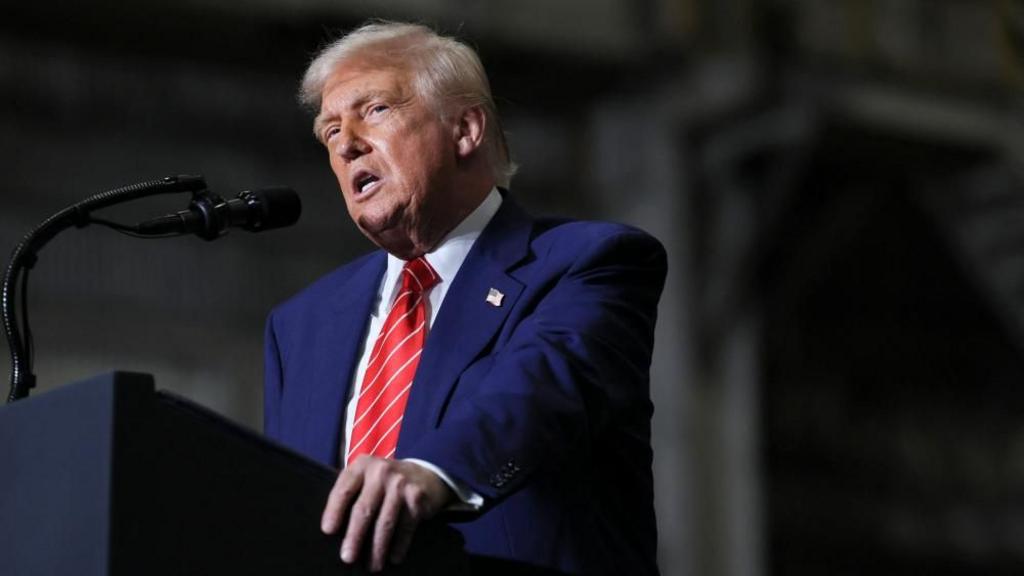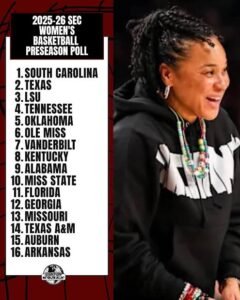Just in:Trump Enacts Cruel Travel Ban on 12 Countries, Fueling Racism, Division, and International Condemnation see ..

“Trump Enacts Cruel Travel Ban on 12 Countries, Fueling Racism, Division, and International Condemnation”
On a controversial note that reignited debates around immigration and national security, former President Donald J. Trump signed a sweeping executive order barring nationals from 12 countries from entering the United States. The list includes Afghanistan, Haiti, Iran, Libya, Nigeria, Somalia, Sudan, Syria, Venezuela, Yemen, Iraq, and North Korea. This renewed travel ban echoes and expands upon previous policies implemented during his administration and has drawn praise and condemnation in equal measure.

Background and Context
Donald Trump has long made immigration a central pillar of his political platform. In 2017, just a week into his presidency, he signed an executive order restricting travel from several Muslim-majority countries, sparking massive protests and legal challenges. The order was widely referred to as the “Muslim Ban,” though the administration rejected that label, insisting it was a matter of national security. Despite judicial pushback, a revised version of the order was upheld by the Supreme Court in 2018.

The latest iteration of the travel ban comes amid heightened global tensions, evolving security threats, and renewed debates over America’s role on the international stage. Though Trump is no longer president, he remains an influential political figure and 2024 presidential candidate, and this move has been interpreted as both a policy stance and a campaign message.
Details of the Ban
The executive order bars nationals from the listed 12 countries from entering the United States, whether on tourist, student, work, or immigrant visas. Specific exemptions apply only in limited humanitarian cases, such as for individuals with serious medical needs or urgent refugee status—though such exceptions must be reviewed on a case-by-case basis and require high-level approval.
Here is the list of countries targeted:
1. Afghanistan
2. Haiti
3. Iran
4. Libya
5. Nigeria
6. Somalia
7. Sudan
8. Syria
9. Venezuela
10. Yemen
11. Iraq
12. North Korea
These countries were chosen, according to Trump’s statement, based on concerns related to terrorism, lack of cooperation with U.S. vetting processes, or general instability. Critics argue, however, that many of these nations are being punished for political reasons or out of discriminatory bias, particularly given the large Muslim populations in many of them.
Government Justification
In his statement, Trump justified the ban as “a necessary step to protect American citizens and uphold our national sovereignty.” He claimed that many of the nations listed have “failed to provide adequate information” for U.S. background checks and have been “harboring or exporting terror threats.”
The Department of Homeland Security (DHS) released a supporting report, stating that the listed countries posed “elevated risks” due to either active terror cells, inadequate passport control, or diplomatic tensions with the U.S. administration.
Critics point out, however, that there is little evidence that nationals from these countries have committed large-scale terror attacks on U.S. soil in recent decades. They argue that the policy is less about security and more about fulfilling political goals related to immigration restriction.
Domestic and International Reactions
The reaction to the announcement has been swift and deeply polarized.
Supporters
Supporters of the ban, primarily Republican lawmakers and conservative media outlets, argue that the United States has the sovereign right to determine who enters its borders. They claim the executive order is a prudent step toward tightening immigration controls and ensuring national safety.
Senator Tom Cotton of Arkansas praised the move, saying, “America cannot allow its enemies to exploit our openness. President Trump’s order puts American citizens first.”
Some immigration restrictionist groups also hailed the ban as a deterrent against illegal immigration and overstayed visas. They argue that without proper vetting, the U.S. opens itself up to exploitation by criminal networks, human traffickers, or foreign actors with malicious intent.
Opponents
On the other side, civil rights groups, immigration advocates, and many Democratic leaders have denounced the ban as xenophobic and discriminatory. The American Civil Liberties Union (ACLU) issued a strong condemnation, calling it “a revival of the unconstitutional and racist Muslim Ban that was widely opposed and morally rejected by millions of Americans.”
Democratic Senator Elizabeth Warren tweeted, “Banning entire nations of people from coming to the U.S. doesn’t make us safer—it makes us weaker, and it betrays our values.”
Humanitarian organizations are particularly concerned about the impact on refugees and asylum-seekers from war-torn nations such as Afghanistan and Yemen. These groups argue that the policy may deny safe haven to people who are fleeing violence, persecution, or famine.
Several international governments have also expressed disappointment, with Iran calling the move “an act of hostility” and Haiti’s foreign ministry labeling it “an affront to our shared democratic values.”
Legal Challenges and Future Prospects
As with the earlier travel bans, this order is expected to face numerous legal challenges. Immigration lawyers and advocacy groups have already begun drafting lawsuits alleging violations of due process, religious freedom, and equal protection under the law.
Legal experts point out that the Supreme Court previously upheld a similar ban in Trump v. Hawaii (2018), giving the government broad discretion in matters of immigration based on national security. However, opponents argue that the inclusion of countries like Haiti and Venezuela shows an overreach and lacks the national security justification required by the precedent.
It is unclear how current courts, particularly if faced with different facts and a broader scope, will interpret this new iteration of the ban.
Human Impact
Beyond politics and legal frameworks, the ban will have significant human consequences. Families could be separated, students may be unable to continue their education, and workers on visas could be forced to leave their jobs and lives behind.
In communities across the U.S., including large populations of Haitians in Florida or Nigerians in Texas, the ban may cause fear and uncertainty. Many fear being unable to reunite with relatives or to travel back home without being barred from returning.
Moreover, universities and tech companies that rely on international talent have voiced concern about losing students and skilled professionals, especially from countries like Iran and Nigeria that have traditionally contributed a large number of graduate students in STEM fields.
Conclusion
Donald Trump’s travel ban on nationals from 12 countries marks a significant and controversial return to one of his administration’s hallmark policies. Framed as a national security measure, it raises deep concerns over discrimination, human rights, and the balance of power in U.S. immigration law.
As lawsuits begin to mount and political tensions rise, the future of the ban remains uncertain. What is clear, however, is that the debate over who should be allowed to come to America—and under what conditions—will remain a deeply divisive and politically charged issue.
—
If you’d like a version of this article tailored for academic use, a simplified version for younger readers, or translated into another language, feel free to ask!



